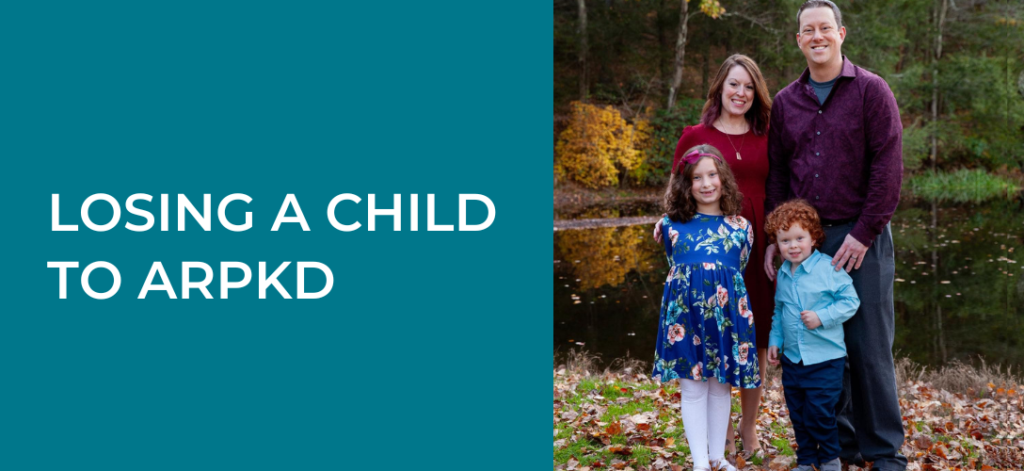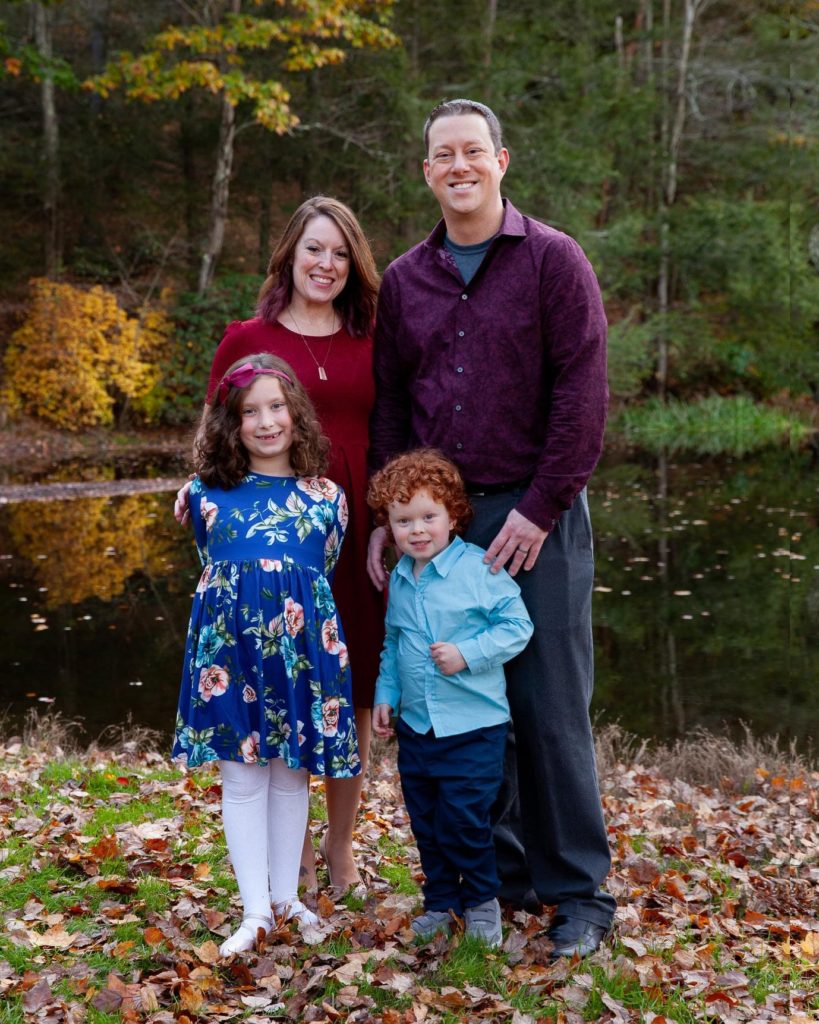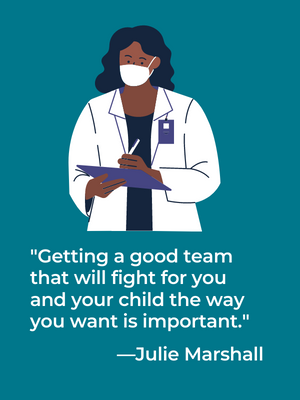
Published on October 15, 2022 | Today is Pregnancy and Infant Loss Remembrance Day. Every October 15, we honor we honor lost pregnancies and infant deaths which includes miscarriages, still births, and of course, ARPKD. A rare genetic disorder, autosomal recessive polycystic kidney disease (ARPKD) occurs in approximately 1 in 25,000 children. Tragically, it can lead to a child passing away within one month of life. Julie Marshall, PKDF volunteer and Board of Directors member, knows just how hard it is to lose a child to ARPKD. Today, she’s sharing her family’s story.
 My Story of Losing a Child with ARPKD
My Story of Losing a Child with ARPKD
When we first heard about ARPKD, we were halfway through our pregnancy with our second child. We went for the anatomy scan naïvely thinking we’d find out the sex of the baby and go along our way. Little did we know that was the day everything would change. We could tell by the way that they were looking and taking extra time that something was wrong. But we didn’t know what it was. When the doctor came back, they said that the kidneys looked echogenic and enlarged.
We went home and did lots of searching on Google, most of which yielded truly scary results. I know they say never to search it, but we all do it. Really, we shouldn’t. The hospital set up appointments with MFM and a genetic counselor. We also met our first pediatric nephrologist shortly after that. The appointment was all “doom and gloom” and very negative. It was difficult and made everything seem hopeless. It became clear that this wasn’t the right doctor for us. We looked into Facebook groups and asked who others see for nephrology. That’s how we found our nephrologist.
When I was pregnant with my first child, we had very few appointments and only a couple ultrasounds. Suddenly, we were in the world of high risk and had appointments constantly. There were a ton of ultrasounds and lots of different appointments with different people and specialists. It was a lot of information and a lot of worry. We didn’t really tell many people at first. I think we had hoped they were wrong. Maybe if we didn’t tell, everything would be fine.
When I was a little bit past 31-weeks, we went to Boston for a routine, bi-weekly appointment and ended up being admitted. Porter was showing signs of distress and they wanted to schedule an emergency C-section right away. Porter was with us for about four hours before he passed away. Because I had major surgery, we stayed for a couple days to heal. They had to move me to a different floor, so I wasn’t around babies. Leaving the hospital no longer pregnant and without our child was one of the hardest things I’ve ever done.
All of this also made us worry for our oldest child too. We heard stories of kids being diagnosed later in childhood. We have a third child who also has ARPKD. You would never know, and honestly, we’d still have no idea if we didn’t have the history with Porter.
 How We Manage ARPKD as a Family
How We Manage ARPKD as a Family
Use Your Support System
Find your support system. Our family and friends are really supportive. I went to therapy for a while and joined groups for infant loss. Talking to others who’ve been through similar situations was helpful to know I wasn’t alone.
With ARPKD, there’s a wide range of possibilities [with disease progression]. It’s also impossible to know how to prepare. There’s no way to know how severely impacted the kidneys may be or if they’ll be fine. And there’s no predicting how you’ll handle it or what you’ll need. Whatever ends up happening, the people who support you will be invaluable.
Improving the Future for ARPKD Patients
At the PKD Foundation, I’m looking forward to helping ARPKD become more of a focus for the PKDF. Many people hear PKD and instantly think of the dominant form. The recessive form is much rarer and they are very different diseases. It’s important that we specify and talk about each, not using “PKD” interchangeably.
Resources for Parents
If you have a child with ARPKD, you may be looking for support and resources. The PKD Foundation is here to help. Our ARPKD resource page has tons of great information to get you started. Including information on:









0 Comments